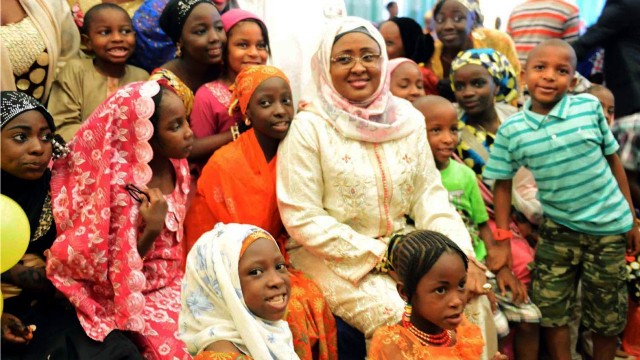Editorial
Protecting The Nigerian Child

Humanity paused last Monday to commemorate this year’s International Day Against Child Labour. Since the inception of the annual ritual 14 years ago, by the International Labour Organisation (ILO), an arm of the United Nations (UN), the global community has seized every June 12 to arouse local, national and international consciousness on the rights of the child and other matters thereto.
The import of the global event is to sensitise mankind on modern day slavery, forced labour, human trafficking, prostitution, destitution, among other forms of abuses associated with the child. The event also aims at fostering sustainable synergy among stakeholders at local, national and global levels.
With the theme: ‘In Conflict and Disaster, Protect Children from Child Labour’, the 2017 edition appears to have particularly harped on the need to ensuring that children, who are most vulnerable in crisis situations are adequately protected.
Over the years, the UN has drummed support for children facing pathetic and dehumanising conditions in various environments and countries in strife and sought for their protection.
It is public knowledge that children are usually subjected to dehumanising treatments as most of them end up as victims of rape, child labour, school drop-outs, child soldiers, child trafficking, among other anti-social conditions that militate against the overall development and well-being of the child.
It is against this backdrop that the UN passed a resolution to protect the child against abuses of such natural rights through the Child Rights Act, which has been domesticated by several countries and states, including Nigeria and Rivers State.
The theme of this year’s event is particularly apt and appropriate as cases of natural and man-made disasters and conflicts abound in different parts of the globe, including Nigeria.
Nigeria constitutes part of the global community with 1.5 billion people affected in conflicts, violence and fragility. UN’s records show that about 200 million people are affected by disasters yearly and one third of the figure are mostly children. Of this figure, over 168 million people who are engaged in child labour live in areas affected by strife.
In the African continent, Nigeria appears to be worst hit as children are subjected to dehumanising treatment and inhuman environment, especially in crisis areas such as the North East, where insurgents under the aegis of Boko Haram had ravaged some states like Borno, Yobe and Adamawa,
Statistics show that millions of people, particularly children, have been displaced and are now in Internally Displaced Persons camps with little or no food and medication, while many others are on the streets as destitutes and drop-outs, hawking, begging and even prostituting just to eke out a living.
Paradoxically and sadly too, Nigeria which prides itself as the giant of Africa with its abundant natural and human resources is ranked among countries with highest school drop-outs.
It is also regrettable that in spite of Nigeria’s professed goal to achieve the Millennium Development Goals (MDGs), the country still perennially battles with cases of child labour, which is virtually becoming endemic and widespread, especially in the South-East.
It is rather unfortunate that the country still contends with the stark reality of over 15 million Nigerian children either displaced or forced into child labour, while others are abused in several other ways.
The Tide, therefore, recommends that Nigeria should take more proactive measures to enforce the Child Rights Law and cultivate cultural and value system which discourages child labour.
We must collectively fight against child labour, child prostitution, child battering, child hawking and begging, child trafficking, child kidnapping and other forms of child abuse, if the society must move forward.
Nigeria should go beyond just domesticating the Child Rights Law but should enforce its provisions and ensure that the enabling environment is created to maximally reduce child abuse.
We must join the global community to achieve and realise the vision of ending child labour by the year 2030.
Editorial
Beyond Accessing Bonny By Road

Editorial
Time For GL 17 In Rivers

Editorial
For A Prosperous 2026

-

 Sports4 days ago
Sports4 days agoTinubu Lauds Super Eagles’ after AFCON bronze triumph
-

 Sports4 days ago
Sports4 days agoAFCON: Lookman gives Nigeria third place
-

 Sports4 days ago
Sports4 days agoFulham Manager Eager To Receive Iwobi, Others
-

 Sports4 days ago
Sports4 days ago“Mikel’s Influence Prevent Some Players Invitation To S’Eagles Camp”
-

 Sports4 days ago
Sports4 days agoMan of The Match award Excites Nwabali
-

 Sports4 days ago
Sports4 days agoRemo, Ikorodu set for NPFL hearing, Today
-

 Sports4 days ago
Sports4 days agoPolice Games: LOC inspects facilities in Asaba
-

 Niger Delta4 days ago
Niger Delta4 days agoINC Polls: Ogoriba Pledges To Continuously Stand For N’Delta Rights … Picks Presidential Form

